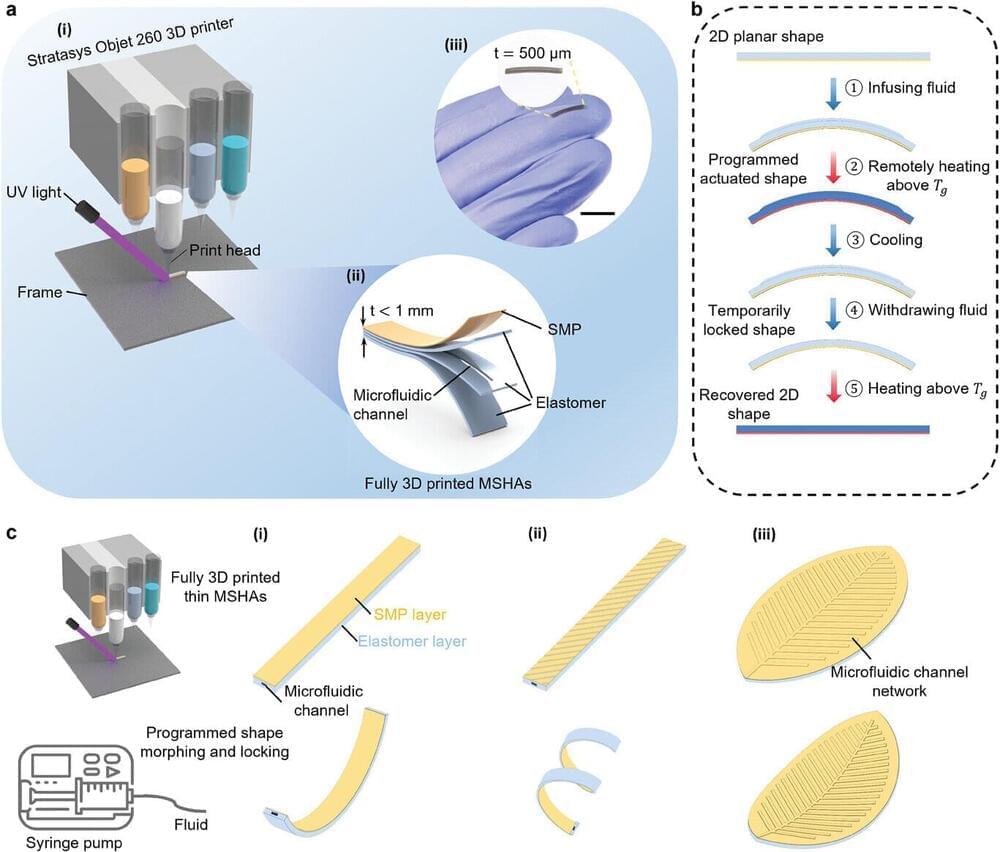If users wish to “freeze” the soft robot’s shape, they can apply moderate heat (64°C, or 147°F), and then let the robot cool briefly. This prevents the soft robot from reverting to its original shape, even after the liquid in the microfluidic channels is pumped out. If users want to return the soft robot to its original shape, they simply apply the heat again after pumping out the liquid, and the robot relaxes to its original configuration.
“A key factor here is fine-tuning the thickness of the shape memory layer relative to the layer that contains the microfluidic channels,” says Yinding Chi, co-lead author of the paper and a former Ph.D. student at NC State. “You need the shape memory layer to be thin enough to bend when the actuator’s pressure is applied, but thick enough to get the soft robot to retain its shape even after the pressure is removed.”
To demonstrate the technique, the researchers created a soft robot “gripper,” capable of picking up small objects. The researchers applied hydraulic pressure, causing the gripper to pinch closed on an object. By applying heat, the researchers were able to fix the gripper in its “closed” position, even after releasing pressure from the hydraulic actuator.









Leave a reply